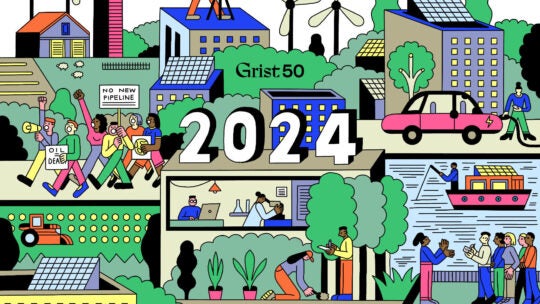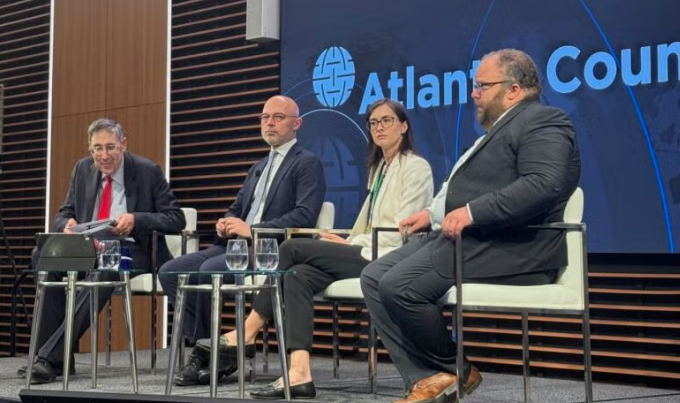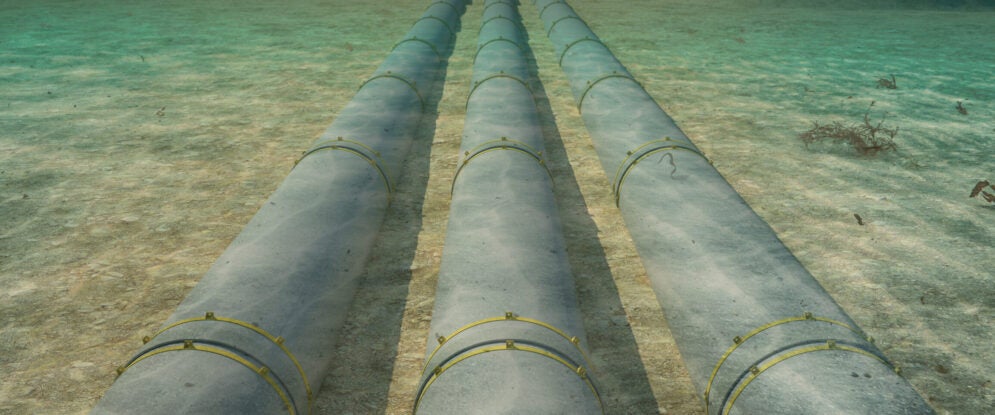Policy Impacts

Institutions and Governance
Shelley Welton engaged with policymakers and advocates on how states could protect their clean energy goals amid potential federal shifts in regional energy market design, especially involving the Federal Energy Regulatory Commission. In recent conversations with the Climate Jobs National Resource Center, she explored strategies to safeguard state authority and advance equitable, worker-centered energy transitions.
Shelley welton WSJ ???

Trump Moves to Gut Low-Income Energy Assistance as Summer Heat Descends and Electricity Prices Rise
In an article she co-wrote for The Conversation, Shelley Welton explains the impact of Trump gutting low-income energy assistance as summer heat descends and electricity prices rise.
Policy Design
Sanya Carley is actively shaping utility disconnection policy through direct engagement with state and federal policymakers. She recently testified before the Massachusetts Joint Committee on Telecommunications, Utilities, and Energy in support of proposed legislation to strengthen utility shutoff protections during extreme heat. This testimony followed a series of briefings she and colleague David Konisky delivered to Massachusetts regulators, including the state’s Public Utilities Commission and representatives from the Attorney General’s office. Their work is also informing similar proceedings in Hawaii. At the federal level, Carley spoke with congressional staff about the Low Income Home Energy Assistance Program (LIHEAP), contributing research insights to ongoing efforts to improve energy affordability and resilience.
“If a landlord is requiring AC, they might raise the rent. Once the rent is raised, residents may curtail the electricity even more.”
– Sanya Carley, Washington Post

The Effect of Residential Solar on Energy Insecurity Among Low- To Moderate-Income Households
Co-authored by Sanya Carley, this national study finds that rooftop solar significantly reduces energy insecurity for low- to moderate-income households, offering policymakers a promising strategy to improve energy affordability.
Greenhouse Gas Removal
Jennifer Wilcox was selected as one of only ten U.S. representatives to join an international IPCC panel focused on carbon dioxide removal (CDR) and methodologies for national climate commitments (NDCs). Endorsed by the U.S. State Department, the panel convened in Denmark to help shape the scientific foundation for global climate policy. “I feel fortunate to be part of this important work,” she said.
Grist 50
A recognized leader in carbon capture, Dr. Jennifer Wilcox brought her deep scientific expertise to the U.S. Department of Energy, where she led the transformation of the Office of Fossil Energy into the Office of Fossil Energy and Carbon Management. During her 3.5-year tenure, she oversaw more than $1 billion in federal investments toward carbon capture, clean hydrogen, and methane mitigation — shifting the focus from fossil fuel production to emissions reduction. In recognition of her groundbreaking work, she was named one of the Grist 50 in 2024.


Universities Must Lead Capacity Building in Carbon Dioxide Removal
The commercial carbon dioxide removal ecosystem is growing rapidly, but the supporting talent pipeline remains underdeveloped. Universities will have a key role in training the workforce for this expanding sector.
California’s Low Carbon Fuel Standard
Danny Cullenward’s publication, California’s Low Carbon Fuel Standard, played a timely and influential role in state energy debates, circulating widely in Sacramento as lawmakers neared the end of a special session on gas prices and began discussions on extending the state’s cap-and-trade program. The report provided a clear analysis of how a complex regulatory policy—developed largely within a state agency—now intersects with major legislative priorities. Its findings have shaped public discourse: California Senate Minority Leader Brian W. Jones cited the study’s projected gas price impacts in both a social media thread and the title of a bill seeking to repeal recent LCFS regulations. The analysis continues to inform high-stakes policy decisions at the state level.
Read the Report
California’s Low Carbon Fuel Standard plays an important and increasingly controversial role in the state’s climate strategy. This report explores the debate over the program’s reliance biofuels and its impact on retail fuel prices.

Underwater Mayhem

Benjamin Schmitt’s Underwater Mayhem report has sparked high-level policy discussions across the transatlantic community on protecting critical subsea energy infrastructure. The report has been widely briefed to policymakers, including the U.S. Pentagon, State Department, and Senate Foreign Relations Committee, where it prompted bipartisan engagement and follow-up requests. Internationally, Dr. Schmitt presented findings to officials in the U.K. Foreign Office, the International Energy Agency in Paris, and at security forums in Poland. His recommendations have informed legislative conversations in the U.S. Congress, including potential inclusion in the FY26 National Defense Authorization Act, and have supported broader NATO-aligned strategies for deterring infrastructure sabotage and enhancing energy security.
Read the Report
Once a niche area of energy security policy, the physical protection of energy and critical infrastructure installations has become a national security requirement due to the growing trend of physical sabotage incidents worldwide. This digest, a companion to the Underwater Mayhem report, is part of a multi-year research project focused on improving monitoring and deterrence to counter the escalating count of subsea critical infrastructure sabotage attacks now ubiquitous around the globe.

Local Impact
John Quigley advanced state-level policy discussions in Pennsylvania through direct engagement with legislative leaders. He met with State Representative Greg Vitali, Chair of the House Environmental Resources & Protection Committee, to share insights on key energy issues and relevant research from the Kleinman Center. Quigley was also invited to testify before the committee on abandoned oil and gas wells, following the publication of his widely read Kleinman blog post on the topic—demonstrating the center’s role in shaping informed, evidence-based policy at the state level.
79 Publications and Insights
Our reports, policy digests, and blogs translate scholarly research into accessible, actionable information.
285 Policymaker Outreach
This year, each publication reached an average 275 policymakers through targeted email campaigns, resulting in several conversations with state and federal leadership.
282 Earned Media
Faculty, staff, and research associates gained the attention of outlets like Politico, The Wall Street Journal, and The New York Times.